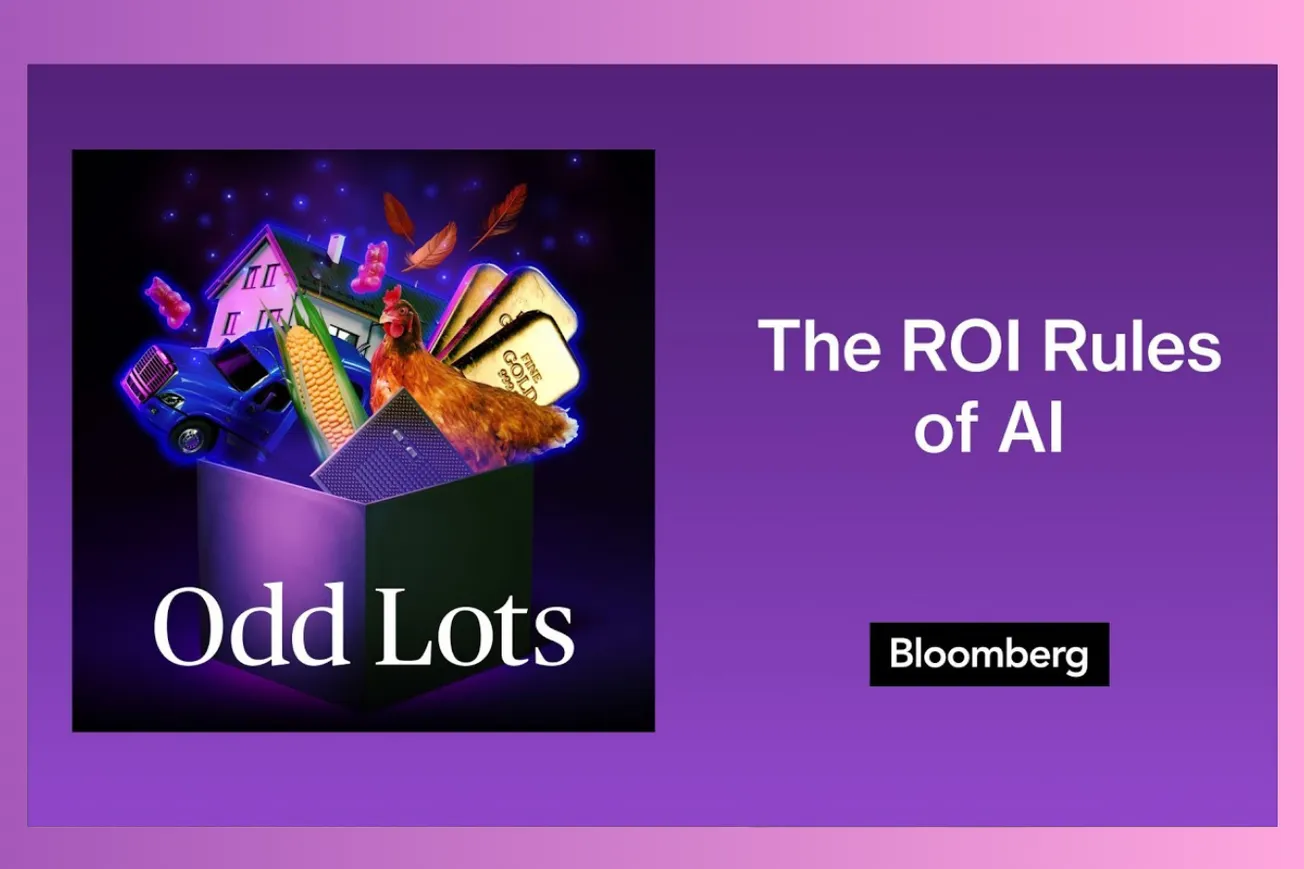Table of Contents
Exploring how Sirion's generative AI-powered contract lifecycle management transforms legal documents from filed-away paperwork into real-time business intelligence tools that drive operational decisions.
Key Takeaways
- Traditional contract review takes 13 minutes per page, but AI can reduce this from days to minutes
- Generative AI enables contract "redlining" that rewrites proposed terms rather than just copying approved clauses
- Sirion built over 600 purpose-built small and medium language models for contract data extraction
- Companies can achieve 30-80% faster contract cycles from first draft to final agreement
- Conversational search technology allows non-lawyers to query contract databases in plain English
- Mid-size companies need to upskill employees for AI projects rather than outsourcing or building internal teams
- Open-source LLMs provide cost-effective alternatives to expensive proprietary models for specialized use cases
- IBM manages over half a million contracts through Sirion's platform, demonstrating enterprise-scale capabilities
- Contract data democratization unlocks business insights previously accessible only to legal departments
Timeline Overview
- 00:00–03:45 — The Contract Filing Problem: Introduction to how contracts traditionally get "filed away in a lawyer's office" and Sirion's vision for making them active business tools through AI integration
- 03:45–08:20 — Sirion's AI Evolution: Company background showing progression from natural language processing to machine learning to 600+ specialized models for contract data extraction
- 08:20–14:15 — Redlining Revolution: Explanation of traditional contract review process taking 13 minutes per page and how generative AI reduces this from "days weeks down to minutes and seconds"
- 14:15–18:30 — IBM Partnership and Platform Choice: Sirion's decision to use IBM Watson X for open-source LLM capabilities, conversational search technology, and governance features
- 18:30–22:45 — Business Intelligence Through Contracts: How conversational search enables procurement officers and business users to directly query contract databases without legal department intermediaries
- 22:45–26:00 — Implementation Advice for Mid-Market: Guidance on AI partner selection, employee upskilling requirements, and "start small think big go fast" approach to adoption
The Contract Lifecycle Problem: From Storage to Strategy
Most companies treat contracts as static legal documents that disappear into filing systems after signing, missing enormous opportunities to extract business intelligence and operational guidance from these critical agreements.
- Traditional contract management involves negotiating and signing agreements that then "get filed away in a lawyer's office not to be consulted again until it has run its course and needs to be renewed"
- Sirion's vision transforms contracts into "a road map to running your business the first step in managing your relationships with your suppliers and clients"
- The company's contract lifecycle management software enables organizations to "digitize their Universe of contracts into a single database extracting metadata like specific Clauses and obligations to make them searchable"
- Beyond searchability, the platform "helps lawyers draft new contracts making sure that the terms limit their company's risk" while enabling general counsel offices to "measure the company's performance against those contracts"
- Gordon Thompson emphasizes that modern contract management should provide "real-time information on how to run your business and gives you the insights you need to Pivot so that you can make the best decisions with the best data at the right time"
- This transformation requires moving beyond traditional document storage toward active business intelligence that supports operational decision-making across the organization
AI Evolution: From Rule-Based Systems to Generative Intelligence
Sirion's decade-plus journey with artificial intelligence demonstrates how contract management technology has evolved from basic natural language processing to sophisticated generative AI capable of human-like legal reasoning.
- The company began "using natural language processing" and evolved to "machine learning" as "technology evolved over the years," building deep expertise in AI applications for legal documents
- Sirion has developed "over 600 small and medium-sized language models that are purpose-built to extract very specific pieces of data out of contracts at a very high Precision rate"
- Traditional AI could handle basic data extraction and clause replacement, "copying and pasting An approved clause in place of a riskier one," but lacked sophisticated reasoning capabilities
- Generative AI enables the transition "to rewriting the proposed contract as a lawyer might do," requiring "using a large language model or llm" for complex legal reasoning
- The challenge with LLMs is that they "are expensive to build and maintain" requiring Sirion to "create a solution that was scalable that was cost effective"
- This evolution represents the broader industry shift from rigid rule-based systems to flexible AI that can adapt to novel legal situations and draft original language
Redlining Revolution: Accelerating Legal Document Review
The traditional process of contract review, known as "redlining," represents a significant bottleneck in business operations that generative AI can dramatically accelerate while maintaining legal precision.
- Legal "redlining" historically involved physical "paper contracts" where lawyers would "literally take a red pen or a red pencil and they would review it and strike through it and make changes"
- The manual process focuses on "making sure that you identify issues risk compliance terms and conditions that meet your ultimate goals as an organization"
- Traditional contract review takes "about 13 minutes to review a page of a contract" and "some of these contracts can be several hundred pages long," creating substantial time investments
- AI acceleration reduces the timeline dramatically: "when you automate it using generative AI that goes from days weeks down to minutes and seconds"
- Sirion's approach uses "an open-source llm and a series of proprietary playbooks which spell out a company's default positions on a variety of legal issues"
- Practical examples include payment terms where "your preferred position might be I wanton payment in 30 days the counterparty says that payment terms might be 60 days so you want to be able to identify that very quickly"
- The system can "Redline even some of the longest contracts in a matter of minutes" while still requiring "human lawyers still review the software's changes" for final approval
IBM Partnership: Platform Selection and Technology Integration
Sirion's choice of IBM Watson X as their AI platform reflects strategic considerations around open-source flexibility, conversational search capabilities, and enterprise-grade governance requirements.
- IBM's "conversational search technology allows designated people in a company's lines of business to ask questions of the serion database and they get answers in plain English"
- The partnership enables business users to access contract information directly: "if you're a chief procurement officer and you want to understand a certain piece of data around your supplier contracts it empowers you to go out and get that information versus having to rely on legal"
- Sirion selected IBM partly because "the ability to use an open-source llm something not every AI platform enables" provides cost-effective scaling options
- IBM's "strength in conversational search" and position as "a pioneer in the AI space" offered both technical capabilities and "thought leadership to Ai and generative AI"
- The "open architecture" approach means "we can use other types of Technologies inside of the Watson platform" enabling flexible integration with existing systems
- IBM serves as both supplier and validation case, with "over half a million contracts that we've ingested into the solution" proving the platform's enterprise scalability
Business Intelligence Democratization: Making Contracts Accessible
The integration of conversational AI transforms contract databases from legal department resources into company-wide business intelligence platforms that support operational decision-making across departments.
- Traditional contract data access required "having to rely on legal to go get that information for you," creating bottlenecks and limiting business agility
- Conversational search "makes contracts into a tool to help manage the business" by enabling direct queries from business users
- The democratization "unlocks business value and business insights that were not possible before" according to IBM's AI leader
- Contract data contains crucial business intelligence about "supplier contracts" and operational terms that procurement officers and other business leaders need for daily decisions
- The technology enables real-time access to contractual obligations, payment terms, renewal dates, and performance metrics without legal department intermediaries
- This accessibility transforms contracts from static legal documents into dynamic business tools that support strategic planning and operational optimization
Mid-Market AI Implementation: Practical Guidance for Adoption
Sirion's experience provides valuable insights for mid-size companies navigating AI adoption, particularly around partner selection, employee development, and implementation strategies.
- Mid-size companies face unique challenges because "small companies tend to Outsource AI projects and large Enterprises have teams of Engineers" while mid-market firms "generally need to upskill their employees to take on an AI project"
- Sirion represents an exception because "they've been native AI for years," highlighting the importance of building internal AI expertise over time
- When selecting AI partners, "depth of experience is a vital consideration" because "AI is not just one type of Technology right there's lots of different ways to implement AI"
- Companies should avoid partners with "myoptic view of how to leverage AI" and instead seek those who "understand all the options available to you and apply the appropriate technology or subdiscipline of AI to your business case"
- Thompson's implementation philosophy emphasizes "start small think big go fast" with advice to "stick your toe in the water" rather than waiting for perfect conditions
- The urgency stems from AI's rapid evolution: "generative AI is moving literally at the speed of light we see new Innovations coming out literally every day so if you're a lagered and you don't start looking at how you can use generative AI you're going to fall so far behind"
Conclusion
Sirion's transformation of contract lifecycle management illustrates how specialized AI applications can deliver immediate ROI while democratizing access to business-critical information. By moving beyond traditional document storage to active business intelligence, the company demonstrates that generative AI's value lies not just in automation but in fundamentally reimagining how organizations interact with their data. The partnership with IBM showcases how mid-market companies can leverage enterprise-grade AI platforms without building expensive proprietary solutions, using open-source LLMs and conversational search to create competitive advantages. Most significantly, the shift from lawyer-mediated contract access to self-service business intelligence represents a broader trend toward AI-enabled organizational flattening, where specialized knowledge becomes accessible across departments and decision-making accelerates throughout the enterprise.
Practical Implications
- For Legal Departments: AI-powered contract management can reduce review times from days to minutes while maintaining quality, freeing lawyers to focus on strategic rather than administrative tasks
- For Business Operations: Conversational search capabilities enable procurement, sales, and other departments to access contract data directly without legal intermediaries, accelerating decision-making
- For Mid-Market Companies: Building internal AI expertise through employee upskilling provides more sustainable value than outsourcing projects or attempting to hire scarce AI engineering talent
- For Technology Partners: Open-source LLM capabilities and platform flexibility become crucial differentiators as companies seek cost-effective scaling options for specialized AI applications
- For Contract Negotiation: Automated redlining and playbook-driven responses can accelerate deal cycles by 30-80% while ensuring consistent risk management across agreements
- For Data Strategy: Existing contract databases represent untapped business intelligence resources that conversational AI can unlock without requiring data migration or restructuring
- For Implementation Planning: The "start small, think big, go fast" approach allows companies to build AI competency incrementally while avoiding the paralysis of over-planning
- For Competitive Positioning: Companies that delay AI adoption risk falling behind competitors who gain advantages in contract cycle times, business intelligence access, and operational efficiency





